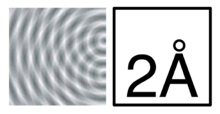True, not Right
The days of hard-drinking journalists (at least drinking on the job) are long over, but it's hard not to picture the anonymous "top operative" of the Romney campaign having to be plied by a few shots, in a dim corner of a motel bar, before he'd let go to the NY Times the following quote:
"First of all, ads are propaganda by definition. We are in the persuasion business, the propaganda business…. Ads are agitprop…. Ads are about hyperbole, they are about editing. It’s ludicrous for them to say that an ad is taking something out of context…. All ads do that. They are manipulative pieces of persuasive art."
There's just something to the overly associative attempts at justification, of moving the context of the political ad (let alone this specific political ad), the undergraduate stabs and big words, coupled with the macho defensiveness one usually only sees in 22-year-old traders after some Ketel One and/or blow in a Wall St. afterhours club, that speaks to a slightly altered state of mind.
Not to mention the giant question of whether political ads really should be ads in the same way "buy our soap" ads are ads.
This summer I got to dive a bit into the political science literature around theories of how voters choose. The three big kahunas are proximity theory (voters pick a candidate with positions most closely matching their own), discounting theory (voters pick a candidate to balance ideological power in the government), and directional theory ("I've always voted for Party A, and never gonna vote for Party B"). As you can see, though these theoretical frameworks and assumptions at times overlap a bit and at times are, they carry the same base "rational actor" assumption we see causing such problems in economics. But let's put aside that weakness, along with the fact that none of these have been empirically studied in depth -- the point is that all would suggest the key information voters require for choice is on positions and ideology: where the candidate stands on Issues A-Z, and what course of action that candidate would follow if elected. Do you see any of that going on in political ads? Soap ads may make mention that the product will get your clothes clean, but what they really sell is some emotional connection -- and here is where I have the feeling the above political science theories break, especially in the U.S. system, and why I have the feeling that election tools such as voter advice applications will be problematic in the U.S. where they are catching on in Europe.
So, in a way, what that drunken operative blurted is true. These ads are propaganda. But he's not right, in his implication that damn it, since we're doing it this way, that's how it should be.
